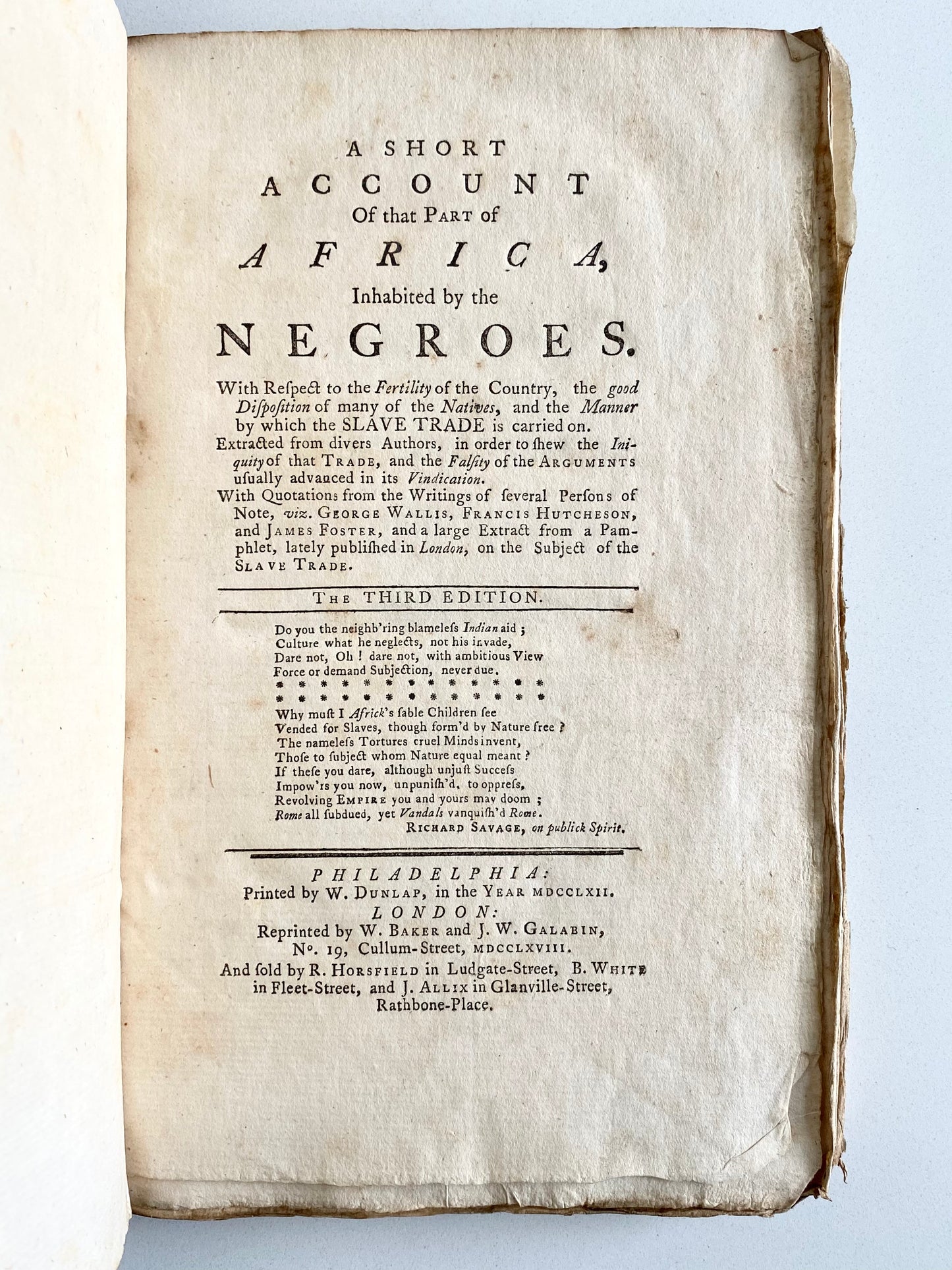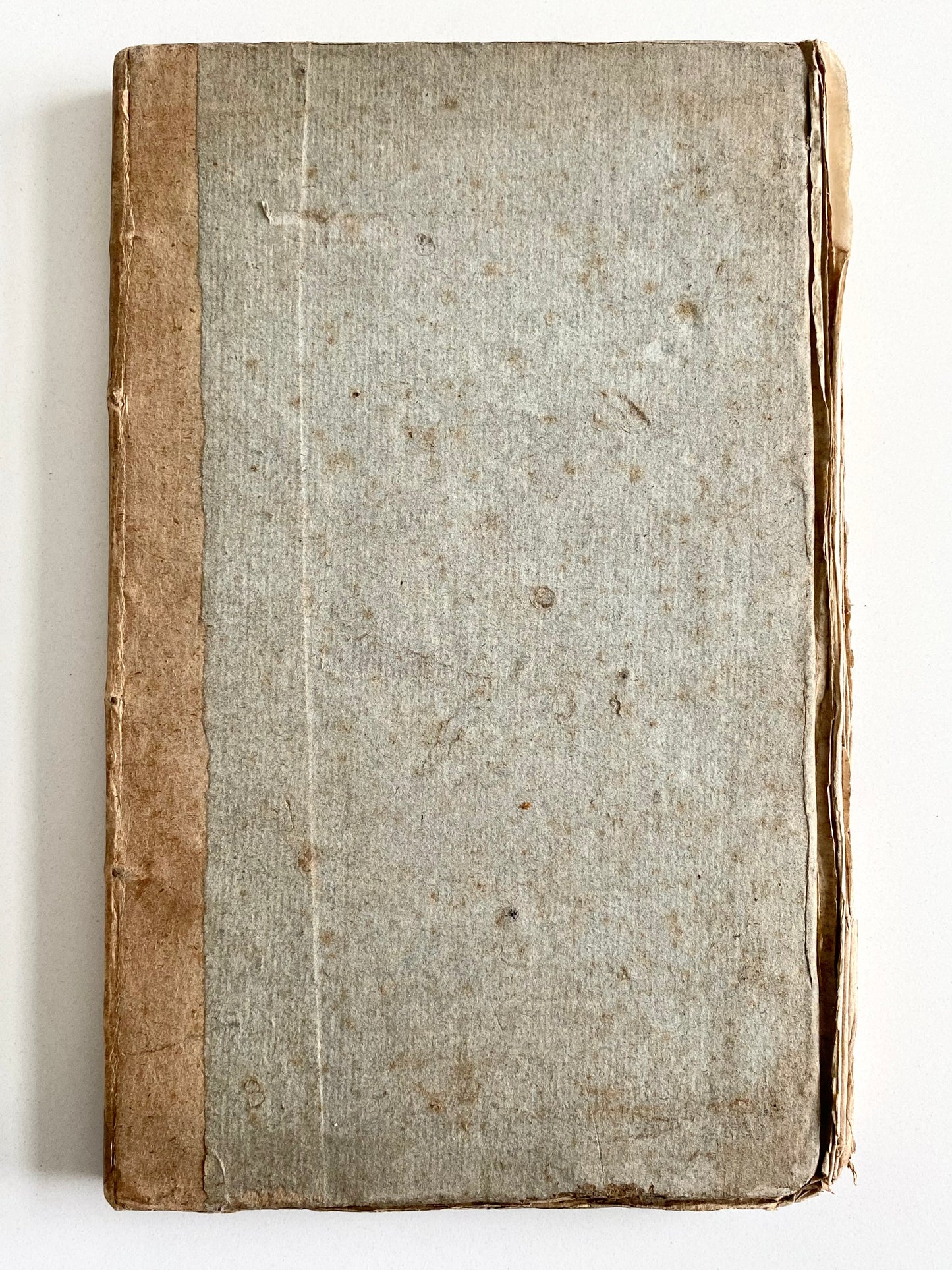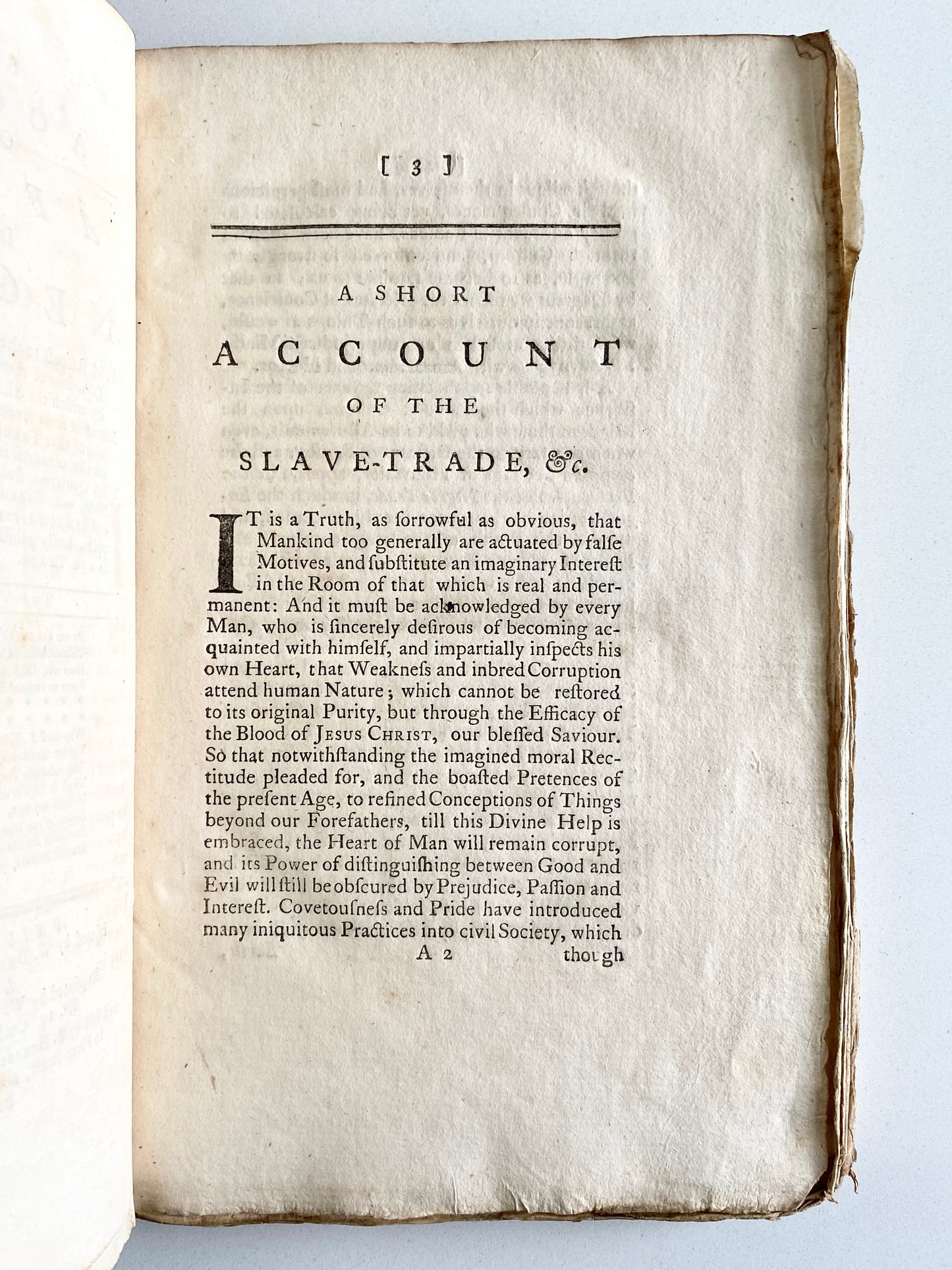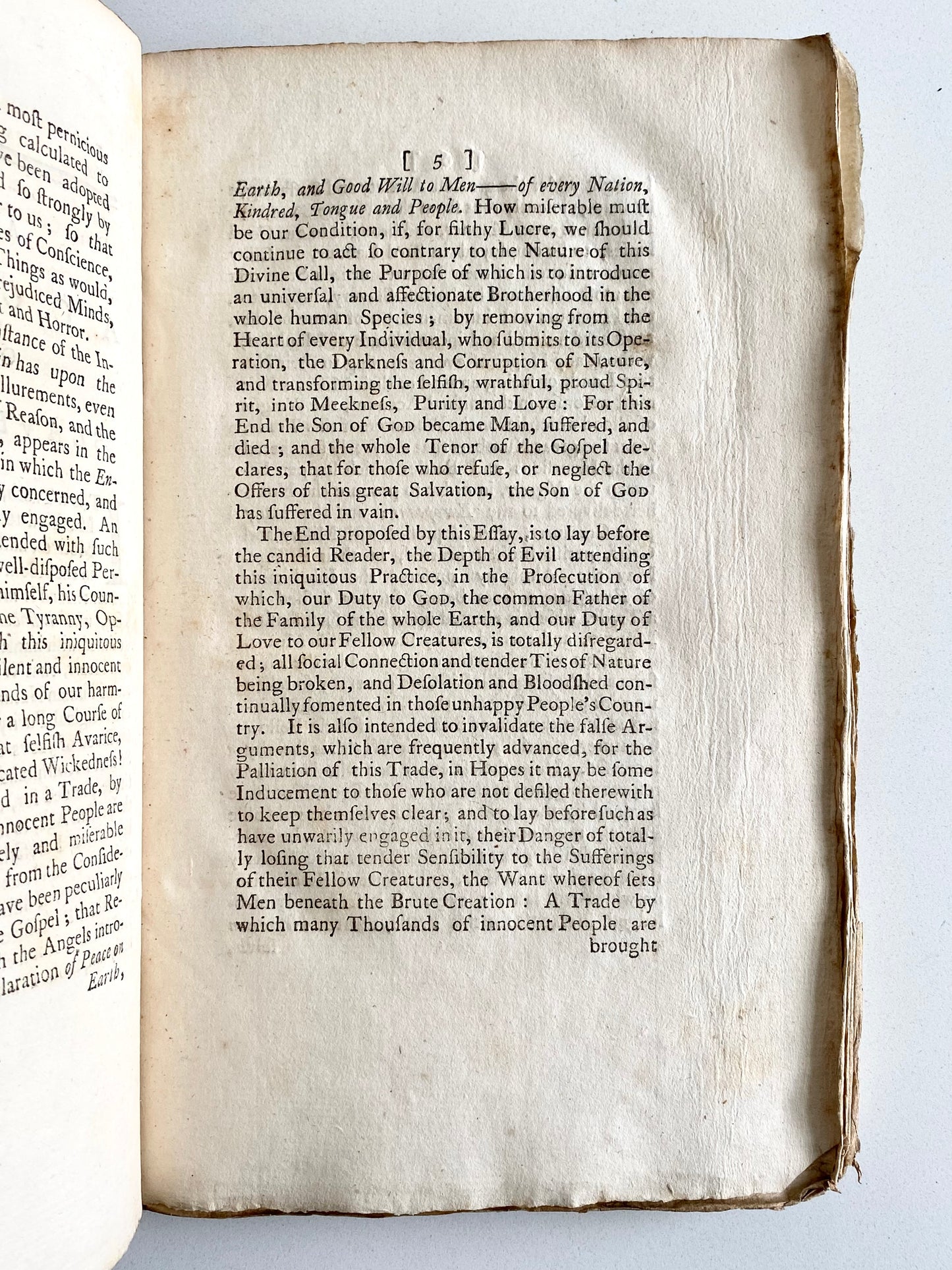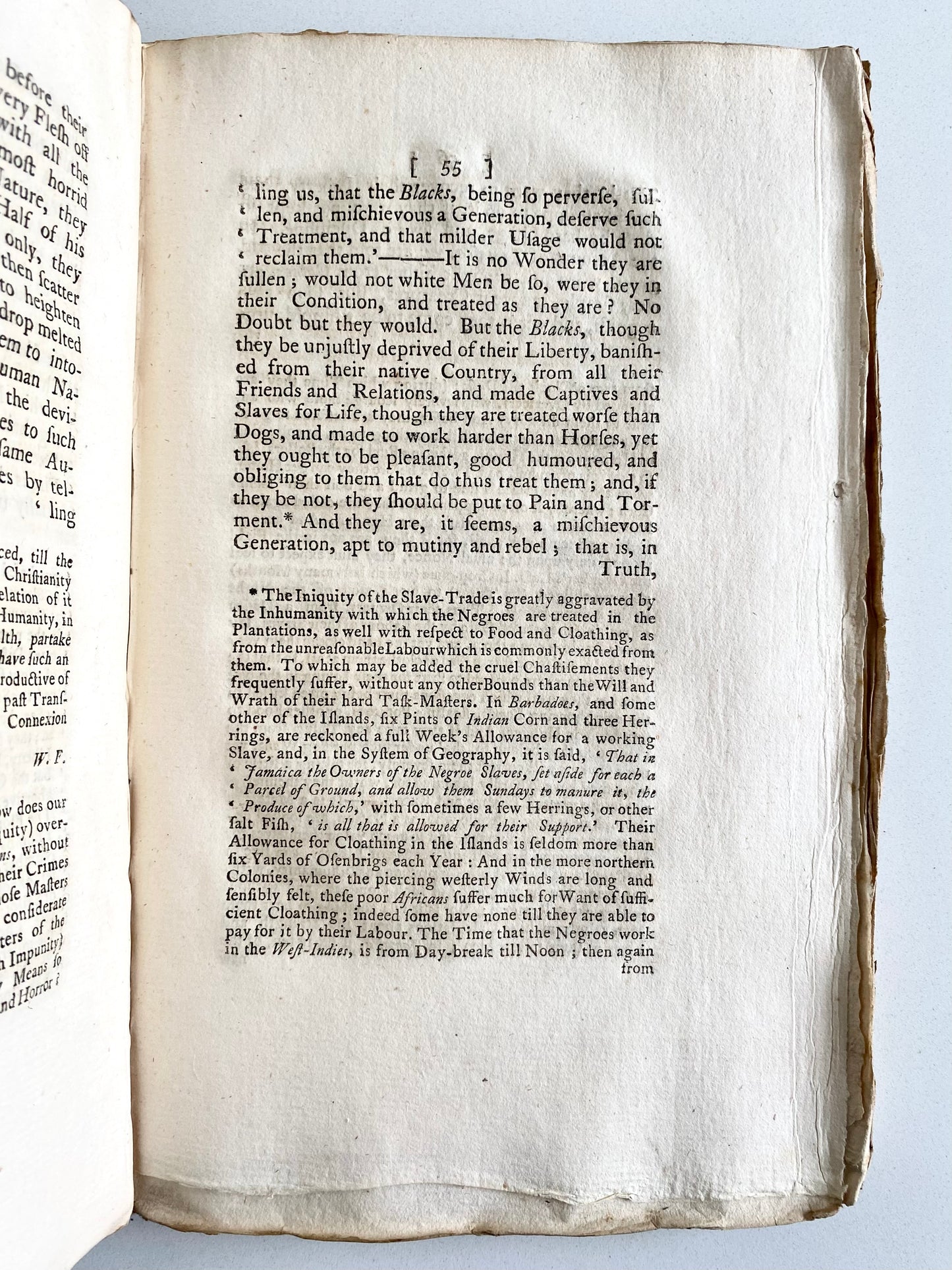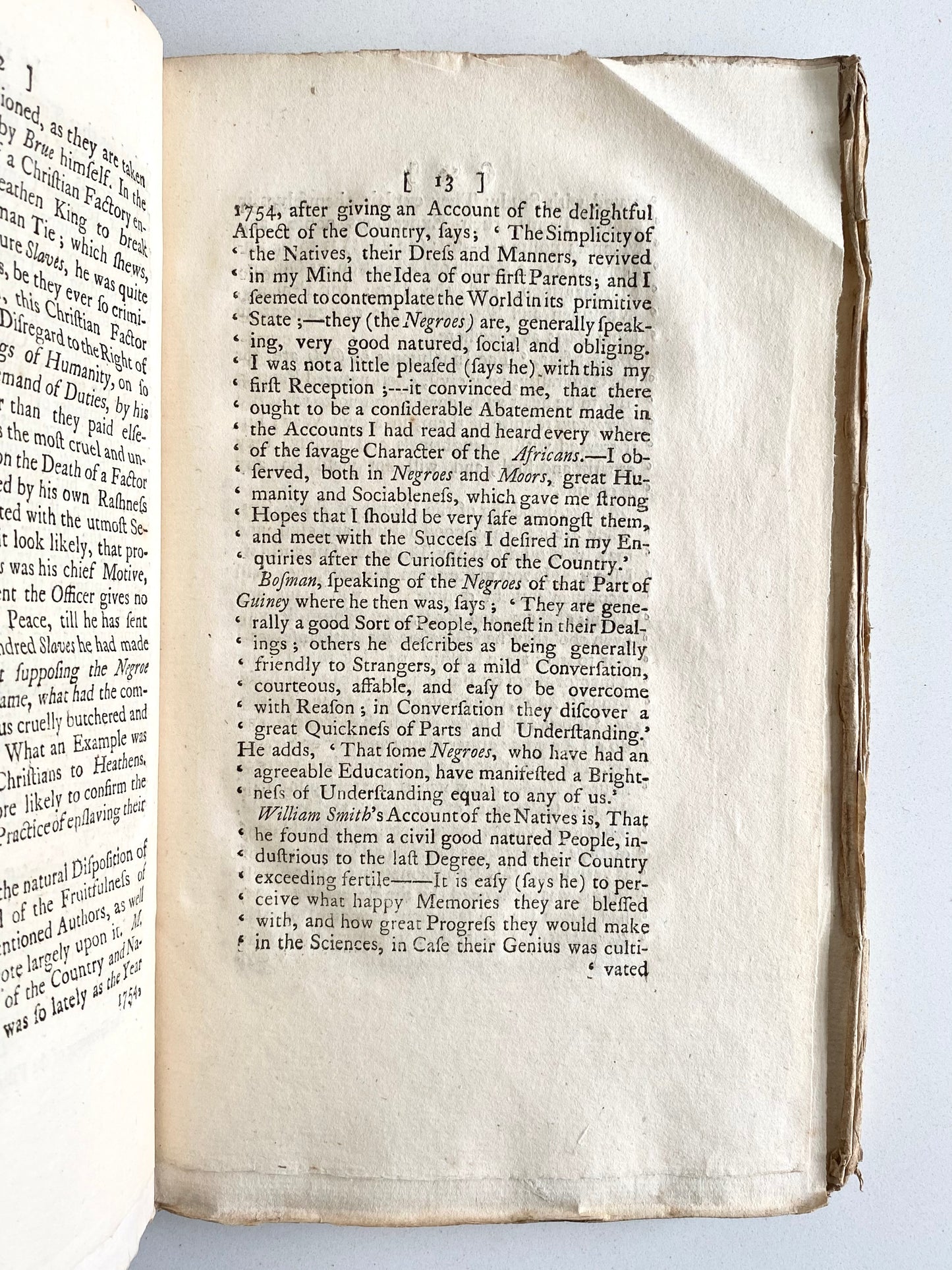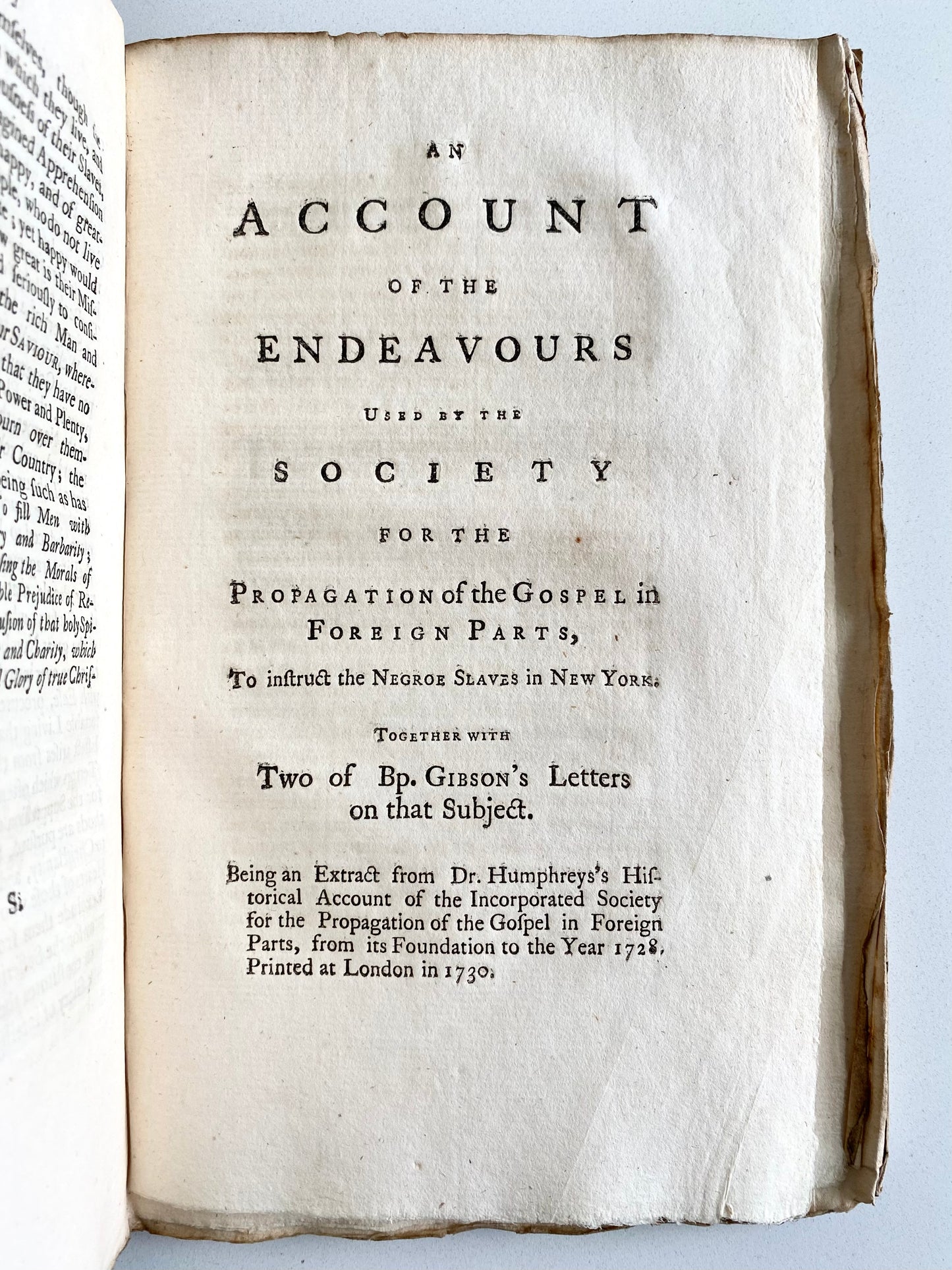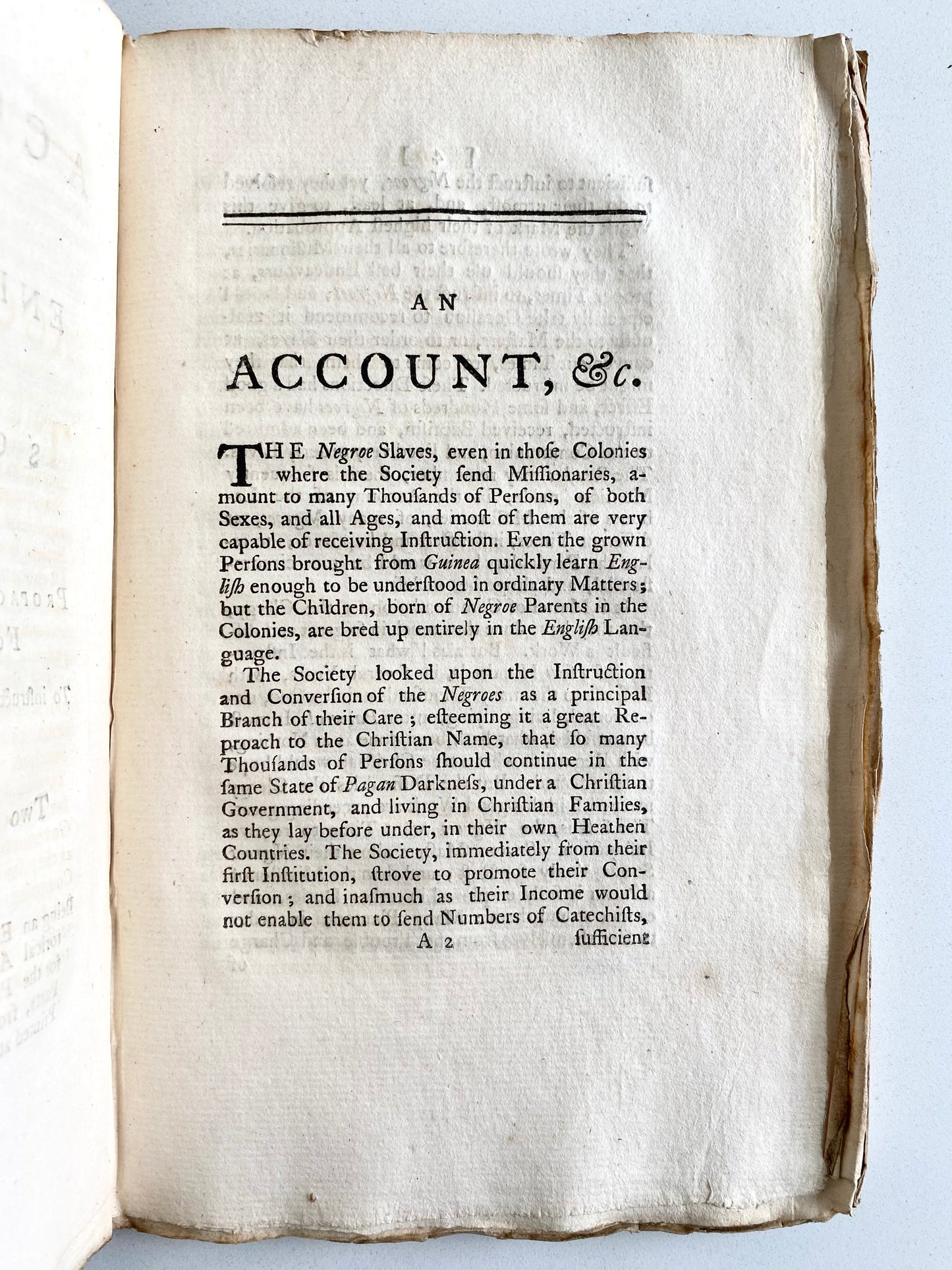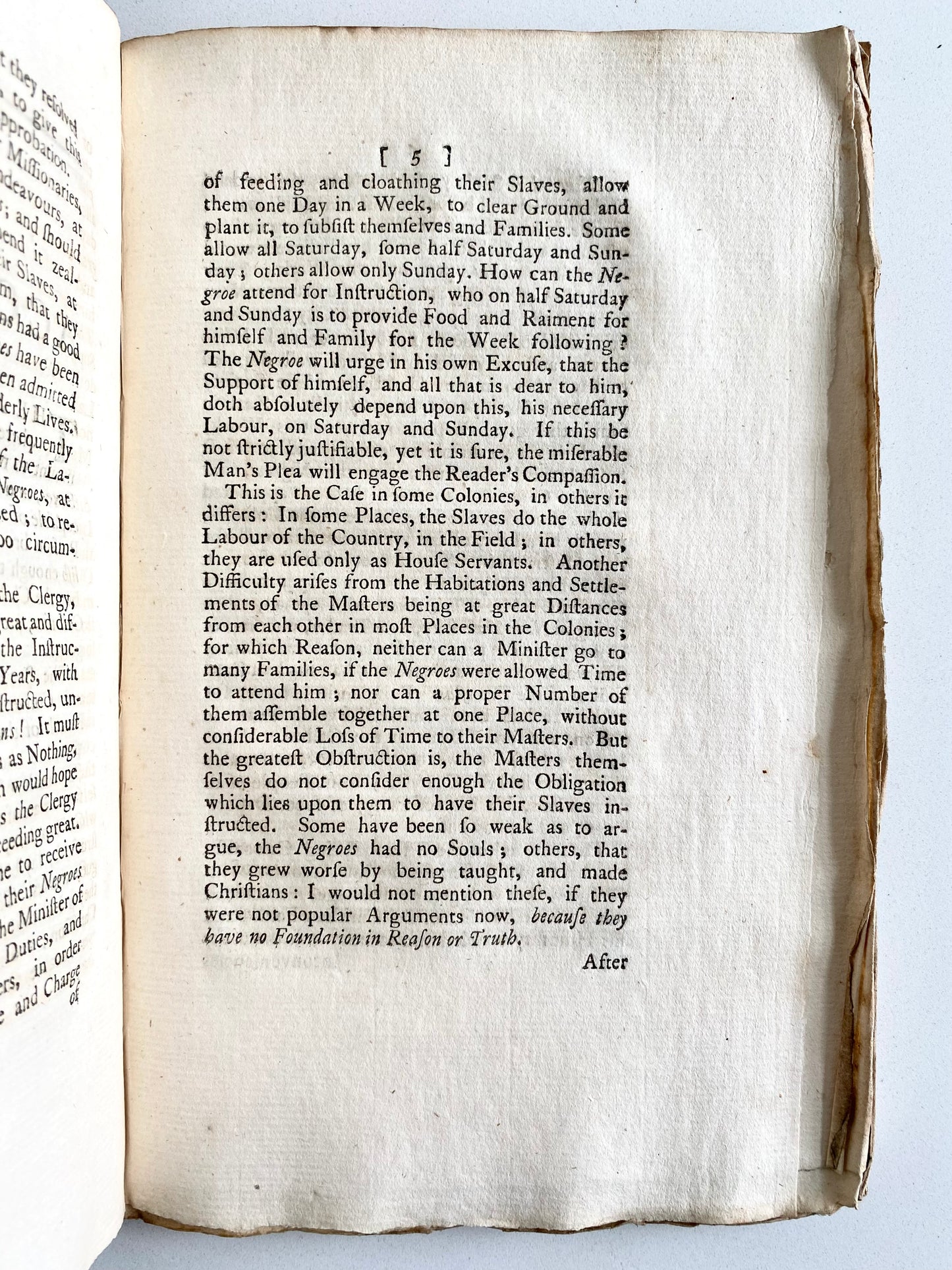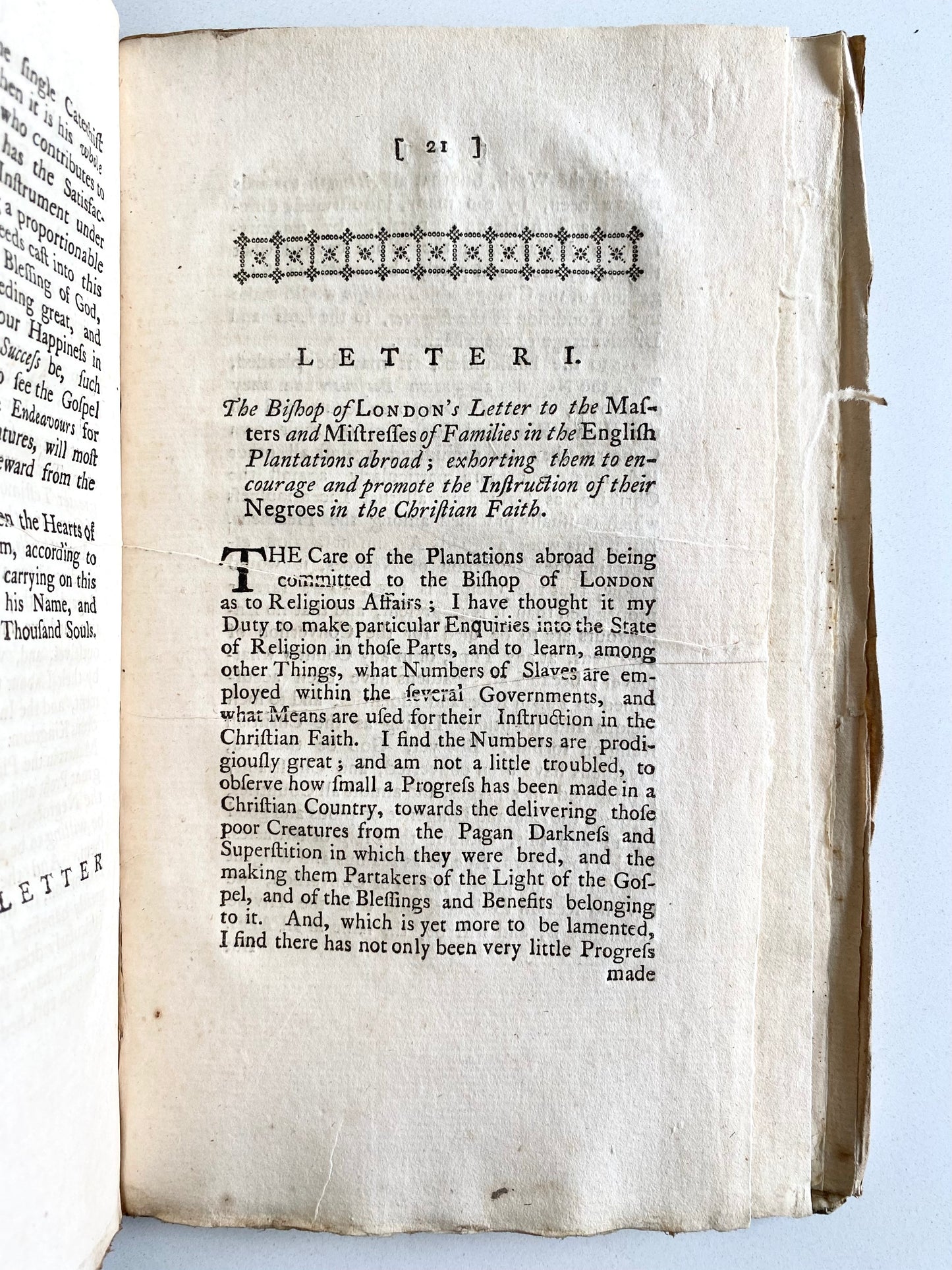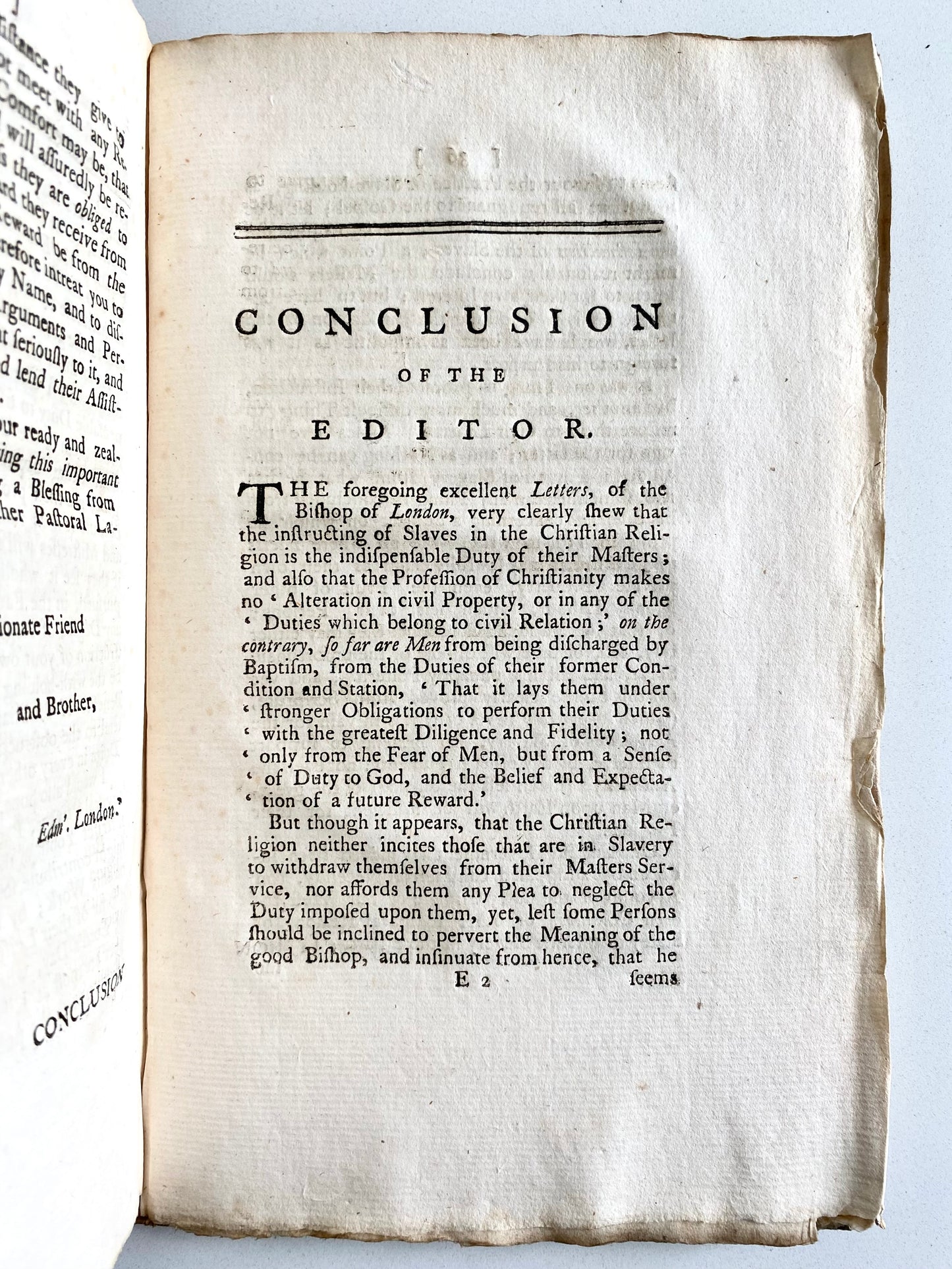Specs Fine Books
1768 ANTHONY BENEZET. Account of Slavery in New York during 1720's - Influenced Thomas Clarkson & William Wilberforce!
1768 ANTHONY BENEZET. Account of Slavery in New York during 1720's - Influenced Thomas Clarkson & William Wilberforce!
Couldn't load pickup availability
A pivotal work in the Abolitionist movement which deeply influenced Thomas Clarkson and William Wilberforce! Other works from this period, more readily available, are on offer at north of $45,000.00!
Benezet, Anthony. A Short Account of that Part of Africa, Inhabited by the Negroes; with Respect to the Fertility of the Country, the Good Disposition of Many of the Natives, and the Manner by which the Slave Trade is Carried on; Extracted from Divers Authors, in Order to Shew the Iniquity of that Trade, and the Falsity of the Arguments Usually Advanced in its Vindication; with Quotations from the Writings of Several Persons of Notes, viz., George Wallis, Francis Hutcheson, and James Foster, and a Large Extract from a Pamphlet, Lately Published in London, on the Subject of the Slave Trade. [London] : Philadelphia: printed by W. Dunlap, in the year MDCCLXII [1762]. London: Reprinted by W. Baker and J.W. Galabin, no. 19, Cullum-Street, and sold by R. Horsfield in Ludgate-Street, B. White in Fleet-Street, and J. Allix in Glanville-Street, Rathbone-Place, MDCCLXVIII [1768] 80pp.
[bound with]
An Account of the Endeavours Used by the Society for the Propagation of the Gospel in Foreign Parts, to instruct the Negroe Slaves in New York. Together with Two of Bp. Gibson's Letters on that Subject. Being an Extract from Dr. Humphrey's Historical Account of the Incorporated Society for the Propagation of the Gospel in Foreign Parts, from its Foundation to the Year 1728, Printed at London in 1730. Philadelphia: printed by W. Dunlap, in the year MDCCLXII [1762]. London: Reprinted by W. Baker and J.W. Galabin, no. 19, Cullum-Street, and sold by R. Horsfield in Ludgate-Street, B. White in Fleet-Street, and J. Allix in Glanville-Street, Rathbone-Place, MDCCLXVIII [1768] 45pp.
An important and exceptionally scarce work by influential abolitionist, Anthony Benezet [1713-1784]. No other copies on the market at any price.
Benezet was a French-born Quaker who deeply influenced Thomas Clarkson. He fled to America to avoid persecution and was there part of the earliest community of anti-slavery leaders in the the United States. It was there the first Anti-Slavery society in America was formed. It was composed of largely influential Quakers, but had as its president for a short time, Benjamin Franklin. Franklin [with whom Benezet corresponded] was sent as an ambassador from the group to the Constitutional Convention in 1787 in an effort to have black slaves living in America counted as citizens with the right to vote and vested with equal rights as their white "owners." Franklin was ignored and the rights of black Americans were sidelined during the framing of the Constitution.
Benezet was a pioneer in the rights of the disabled, black children [for whom he ran a school in his home], and was one of the most influential voices in the early anti-slavery movement. It was he that influenced Thomas Clarkson, who in turn, with Sharpe, influenced William Wilberforce to join the slave's cause. It could certainly be argued that Benezet was "the" pivot on which abolition in both the United States and England made its turn.
Part of this present work's importance is in the way it handled one of the common pieces of argumentation in favor of slavery, i.e., that Africans were uncivilized, savage, devoid of culture and intelligence. This somehow seemed to make Americans feel more comfortable enslaving them, as they lacked the hallmarks of "humanity."
The present work catalogues the beauty of African culture, community, signs of art and intelligence and innovation, and more. It is a landmark document celebrating African culture as a way of exposing the sheer inhumanity and cruelty of slavery. In short, he argued, these are people. And if they had not intelligence or culture or art, that would not have mattered. But they did. Benezet does a brilliant job and exposing the fraud in American's hearts when it came to this vital issue.
The second work on slavery in New York in the early 1700's, printed at the same time as the former, is very rarely present and much more scarce on the market.
These documents are important for our time. Regardless of the "times" as a justification for early American slavery, it is untrue to believe there were not voices in the wilderness crying out. This was one of them.
Original cloth spine over paper boards. Rare original wide margins.
Share
